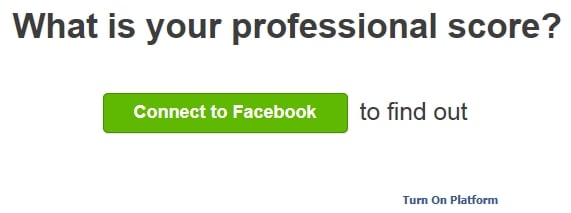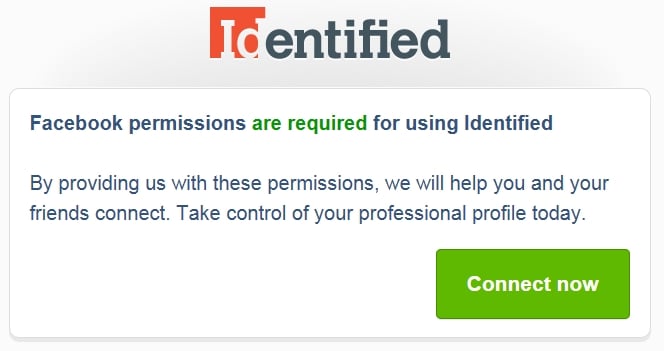In the April 10, 2018 Ask The Headhunter Newsletter, a reader seeks the keys to good networking.

Question
Everyone talks about networking as the best way to find the right job. There must be a key to this approach beyond just going to networking meetings and signing up with one of the online social networks. What advice can you give me about how to do it right?
Nick’s Reply
You may have been to networking events where people spend a minute apiece with you after cycling through several other new “contacts,” and then expect that you will introduce them to your closest business buddies. Such gatherings have gotten a bad reputation because they can be mercenary and impersonal. You’ve met, but have no real common ground, and there’s no value in your new connections because they are ephemeral and because there are no shared experiences between you. (See Please! Stop Networking!)
The online social networks are even more problematic. You sign up, add the names of your co-workers, former employers and friends, and the network links you to other members with similar backgrounds. Everyone is encouraged to dump names into the system, then to collect contacts. But while these networks create lots of connections, there is little emphasis on the quality of those links.
Networking: the quality of the connections
And that’s the key: The quality of connections is in relationships.
From
Shared Experiences: The path to success (p. 12)
Don’t squander a good contact because you didn’t cultivate it carefully, personally, and intelligently. No one can afford to waste good contacts. But don’t try to force a contact to produce results all at once. Go slowly, and let the contact blossom for you through shared experiences.
Fearless Job Hunting, Book 3: Get in The Door (way ahead of your competition)
Social networks like LinkedIn suggest that quality of contacts is important, but the mechanics of how that network operates reveal that having lots of contacts is more important to LinkedIn than having good contacts or in doing things with the people you meet.
That’s why LinkedIn (and other networks, like Facebook or Twitter) help you highlight your number of links. Why? Because the networks themselves profit mainly from their size. It’s an inherent contradiction and even a conflict of interest.
But the people who actually benefit from online social networks are the same people who know how to turn a first meeting into a healthy, long-term relationship. They know it requires a considerable investment; there’s nothing automated about it. Nor is there anything phony.
Quality Networking: Common ground
I think good networking has three key ingredients. First, it requires common ground. People must have something to share that is useful to others. The best place to start is with your work. Identify people who do the work you do (or want to do), then e-mail them, call them, meet them and talk shop with them. (Not about jobs.)
Quality Networking: Value
Second, good networking is sustained by value. What can you do to either help or genuinely engage another person? How about a tip that will enable her to be more productive? Or you can ask honest, sincere questions about the work she does, to educate yourself and to draw her out. That creates more common ground. And that requires an honest, willing investment. If you’re not truly interested in someone, leave them alone.
Quality Networking: Sharing time
Third, good networking takes time. Trust grows between people through repeated good experiences. Sharing takes time.
From
Shared Experiences: The path to success (p. 13)
Be likeable: Talk shop. When you talk to people about the work they do, they perceive you as likeable because you exhibit interest in them. It’s a basic human reaction. Talking shop with people makes them remember you positively. When you meet again to talk about a job, you’re the likeable candidate. And, right or wrong, people recommend who they like, and managers tend to hire people they like.
Fearless Job Hunting, Book 3: Get in The Door (way ahead of your competition)
Once I trust you, I’ll draw you into my circle of friends—and that’s where valuable job referrals come from. Lazy, self-centered people have lousy networks and scant, weak relationships, and they’re the first to complain that networking is icky and that networking is phony. “Besides, who has time?” (See Networking For Introverts: How to say it.)
The best way to become well-connected is to meet and stay in touch with people who do the work you’re interested in and who are good at what they do. Don’t go to them when you’re job hunting. Go to them to share experiences that are meaningful to you both. Establish the kinds of relationships—and a reputation—that makes people want to come to you when they learn about a great job.
Friends share experiences
In a nutshell, I think networking is really about making friends. It’s about doing stuff together.
It’s got virtually nothing to do with getting a job or with any other kind of “payoff.” You do it because it makes life and work more enjoyable—and because giving something back makes your professional community (and the world) a better place. And when you live in a better place, somehow your life becomes better, too.
What’s your experience with networking? What are the keys? What do you look for in a healthy professional connection or relationship? What makes you want to refer someone for a job?
: :
 If you’re looking for a job at a tech company like Facebook, Amazon, or Google, you’re probably also looking for a referral. Just buy one. Rooftop Slushie, a website created by the makers of the anonymous tech forum Blind, has facilitated more than 11,000 referral purchases since launching last year, Daniel Kim, the site’s product manager, told OneZero.
If you’re looking for a job at a tech company like Facebook, Amazon, or Google, you’re probably also looking for a referral. Just buy one. Rooftop Slushie, a website created by the makers of the anonymous tech forum Blind, has facilitated more than 11,000 referral purchases since launching last year, Daniel Kim, the site’s product manager, told OneZero.






